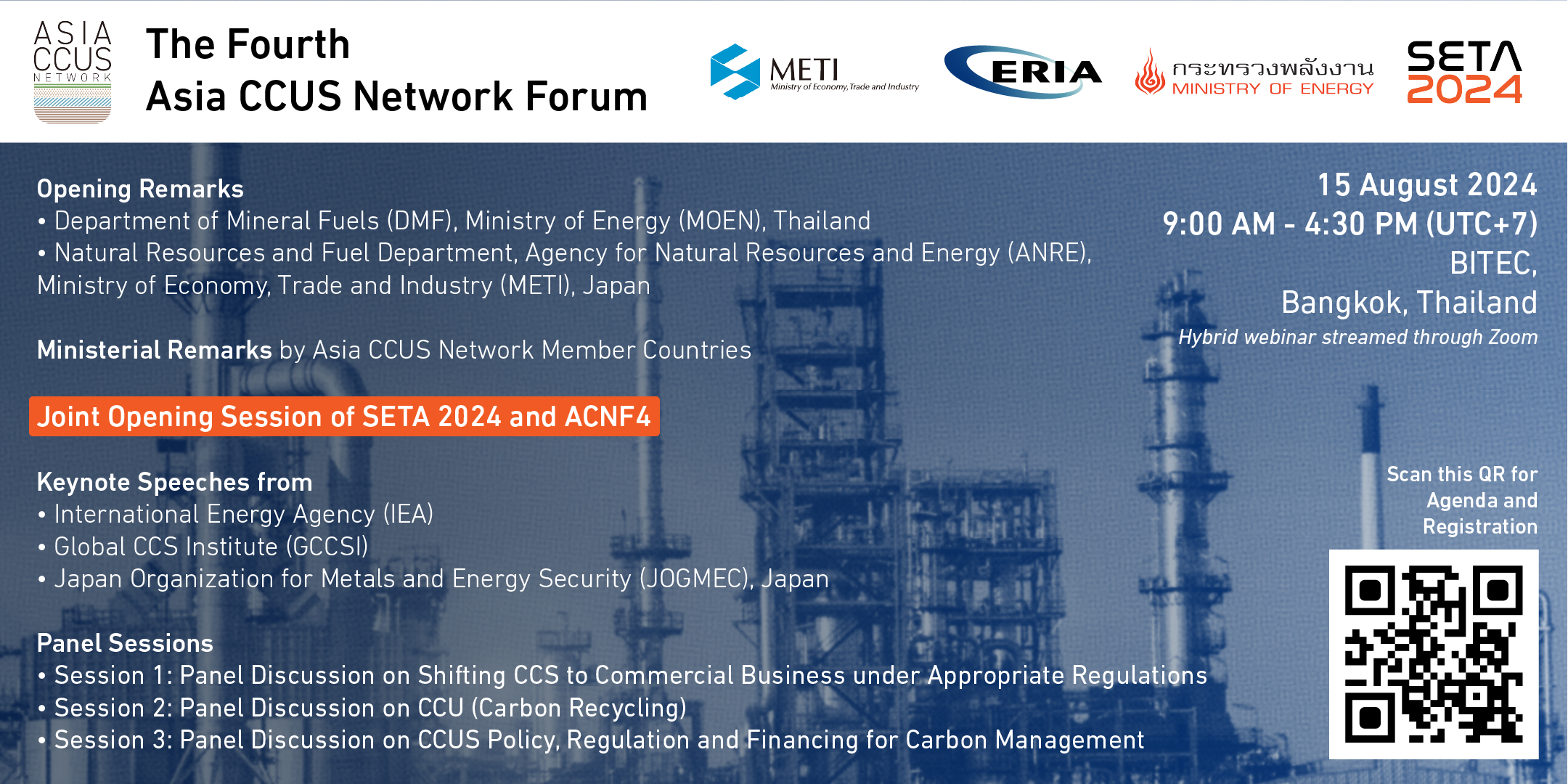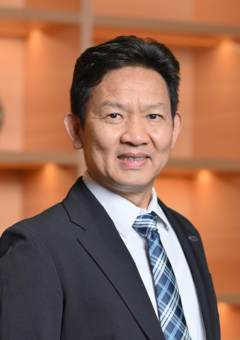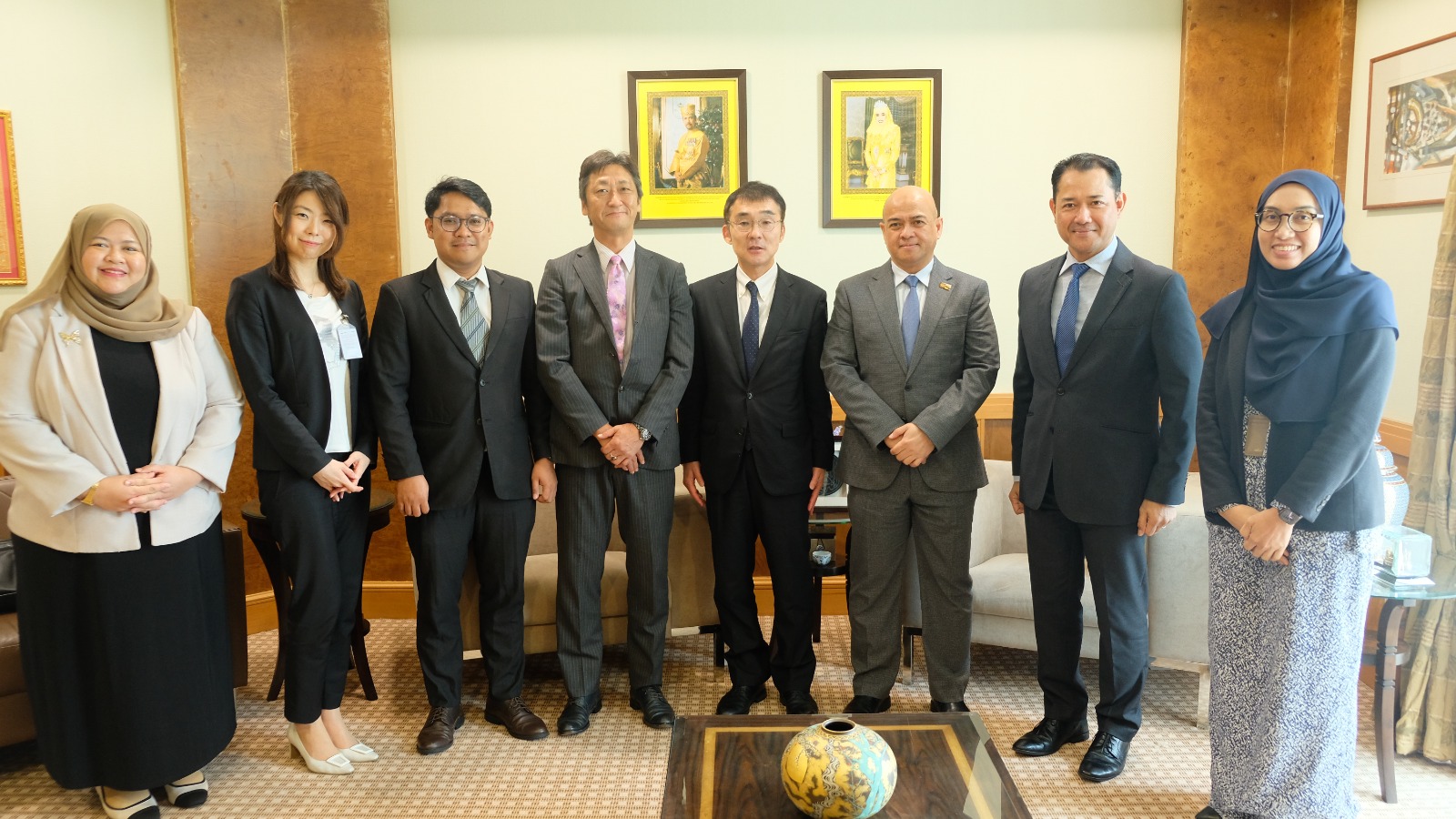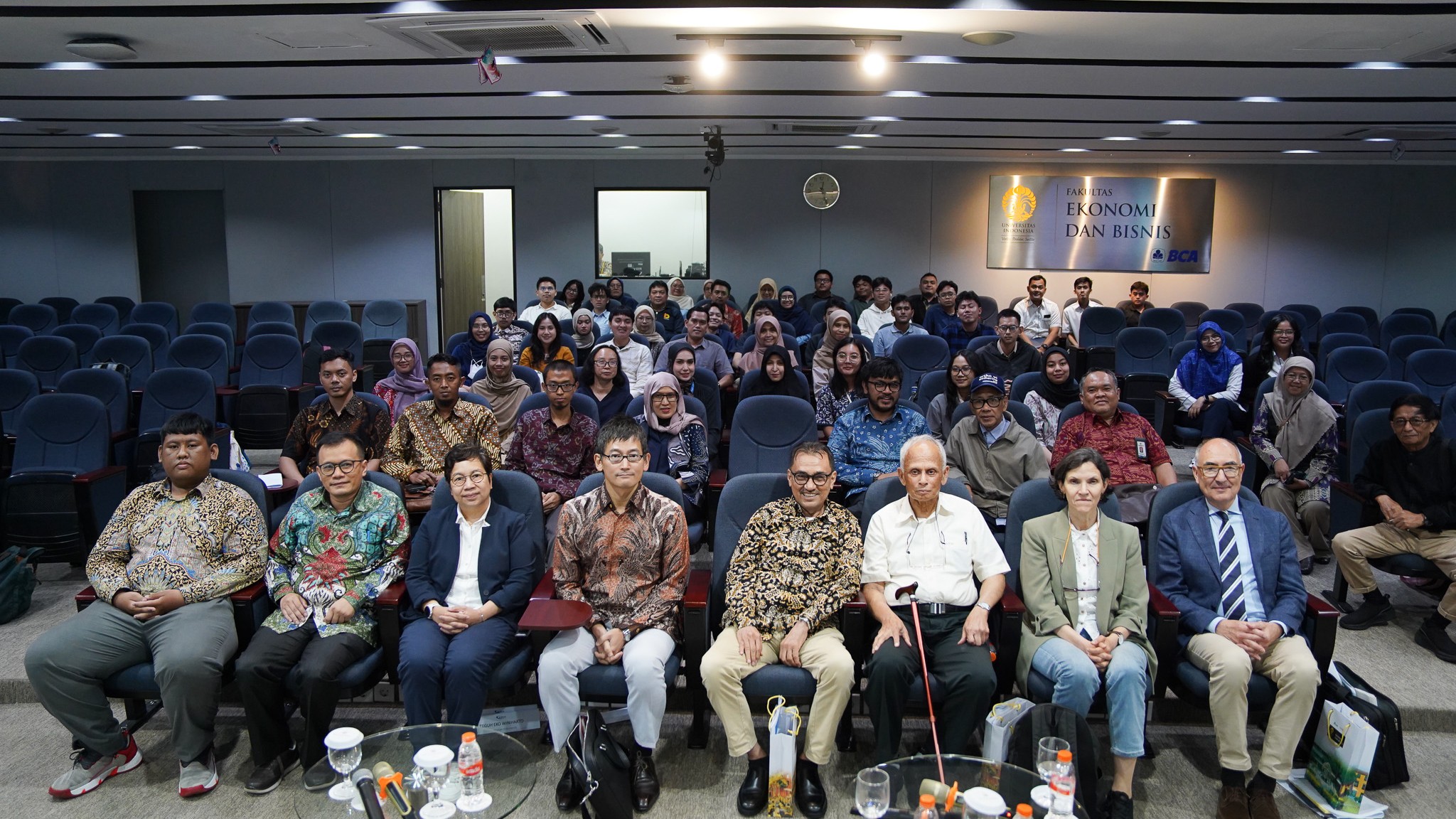
Thu, 15 August 2024
Register to join the webinar through Zoom
Register to join the event in-person
After COP26, held in Glasgow, UK in autumn 2021, many Asian countries echoed western nations' call for pathways to achieve carbon neutrality by 2050 or beyond, with international assistance. However, any pathway will need to pay attention to the accessibility, availability, and affordability of energy supply in order to sustain reasonable economic growth until 2050. Therefore, in the energy transition period towards carbon neutrality beyond 2050, fossil fuels will remain indispensable but with emission abatement. For the power generation sector, a ‘Coal to Gas’ shift is an important policy, but the increase of Clean Coal Technology (CCT) with high thermal efficiency is also essential to reduce CO2 emissions from Business As Usual (BAU). Then, after 2040, Carbon Capture and Storage (CCS) technology will be applied to coal and gas power plants on a commercial basis to cut 90% of CO2 from these power plants.
In the transport sector, although the promotion of Battery Electric Vehicles (BEV) and Hydrogen Vehicles, including Fuel Cell Vehicles (FCV), is highlighted, the application of synthetic fuels is also considered to reduce CO2 emissions as another pathway. Carbon Capture Utilisation and Storage (CCUS) is a crucial technology for producing synthetic fuels based on captured CO2 and blue or green hydrogen. Besides fuel switching towards cleaner fuels such as gas and renewable energy, clean technologies such as the application of ammonia, hydrogen, and CCUS are, and will be, appropriate for the Asian region to achieve net zero emissions.
According to the results of the Low Carbon Energy Transition – Carbon Neutral scenario (LCET-CN) under the East Asia Summit (EAS) Energy Outlook, being updated by the Economic Research Institute for ASEAN and East Asia (ERIA), ASEAN countries will apply CCS for 85% of coal power plants and 91% of gas power plants by 2050. Thus, CCS will be an indispensable technology for these countries to achieve carbon neutrality by 2050 or beyond. The Asia CCUS Network is considering initiating a CCS pilot project in this region, drawing on the significant expertise and experience in CCUS of developed countries such as Australia, Japan, and the United States. This includes selecting appropriate candidate sites through research studies, knowledge-sharing conferences, and capacity-building training.
Several CCUS projects are ongoing in the Asian region, especially in oil and gas-producing countries such as Indonesia and Malaysia, applying EOR (Enhanced Oil Recovery) and EGR (Enhanced Gas Recovery), conducted by international oil companies such as BP (British Petroleum) and national oil companies such as PERTAMINA, with support from specialised organisations in developed countries on CCUS. Unfortunately, actual CCS projects, which store CO2 in a saline aquifer, are still at the demonstration stage with governmental support. However, an increase in CCS demonstrations in the Asian region will provide valuable lessons and insights on CCS, not only from a technological perspective but also from a business standpoint. It is expected that CCS demonstration projects will transition to commercial projects gradually around 2025-2030.
Consequently, during the 4th Asia CCUS Network (ACN) Forum, the main topics of discussion will include: a. commercialisation of CCS/CCUS businesses, including the establishment of appropriate legal and regulatory frameworks; b. CCU/Carbon Recycling, focusing on policy and economic aspects; and c. collaboration with the Carbon Management Challenge. In addition, several signing ceremonies of MOUs/MOCs between Japanese organisations and ASEAN organisations, such as national oil companies, will be held during the forum. The 4th Asia CCUS Network forum will be kicked off by opening remarks from VIPs of the Thai energy sector and the President of ERIA, followed by congratulatory speeches from VIPs of the member countries of ACN, as well as keynote speeches from heads of international organisations related to CCS/CCUS, such as the IEA and GCCSI. A panel discussion among selected advisory group members of ACN will also be held to discuss CCS/CCUS business regulations and government policy support.
After the 4th ACN forum, METI, Japan and ERIA will hold a press conference to deliver the press release which summarizes the forum.
Agenda
| 9:30 AM - 11:20 AM |
Opening Ceremony of SETA 2024 and ACNF4 Welcome Address
Guest of Honor Welcome Remark
Guest of Honor Opening Remark
Opening Remarks
Welcome Addresses
Keynote Address
Sponsor Remark
Official Opening Ceremony |
| 11:40 AM - 12:15 PM |
Ministerial Remarks Congratulatory remarks by ACN’s Member Countries
|
| 12:15 PM - 12:45 PM |
ACNF4 Press Conference |
| 12:15 PM - 1:15 PM |
Networking Lunch Break at the Welcome Hall area |
| 1:15 PM - 1:45 PM |
Keynote Speeches
|
| 1:45 PM - 2:45 PM |
Session 1: Panel Discussion on Shifting CCS to Commercial Business under Appropriate Regulations Moderator: Dr I Gusti Suarnaya Sideman, CCS-CCUS Expert, Energy Unit, Research Department, ERIA Panellists: Issues and challenges for commercialization of CCS
Current progress of CCS regulations
|
| 2:45 PM - 3:45 PM |
Session 2: Panel Discussion on CCU (Carbon Recycling) Moderator: Shigeru Kimura, Senior Policy Fellow for Energy Affairs, ERIA Panellists:
|
| 3:45 PM - 4 PM |
Break |
| 4 PM - 5 PM |
Session 3: Panel Discussion on CCUS Policy, Regulation and Financing for Carbon Management Moderator: Dr Han Phoumin, Senior Energy Economist, Energy Unit, Research Department, ERIA Panellists: Introduction of Carbon Management Challenges in the country
|
| 5 PM - 5:10 PM |
Wrap-up
|
| 5:10 PM - 5:20 PM |
Closing Remark
|
ERIA Speakers
Event Details:
Hybrid Event
The Fourth Asia CCUS Network Forum,
Start Date:
Thursday, 15 August 2024,
End Date:
Thursday, 1 January 1970,
Time:
09:20 AM - 04:30 PM
Timezone:
Bangkok time, UTC+7
Subscribe to mailing list
Invitations | Publications | Newsletters


